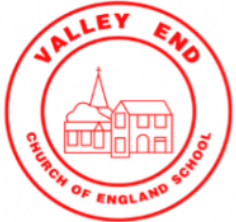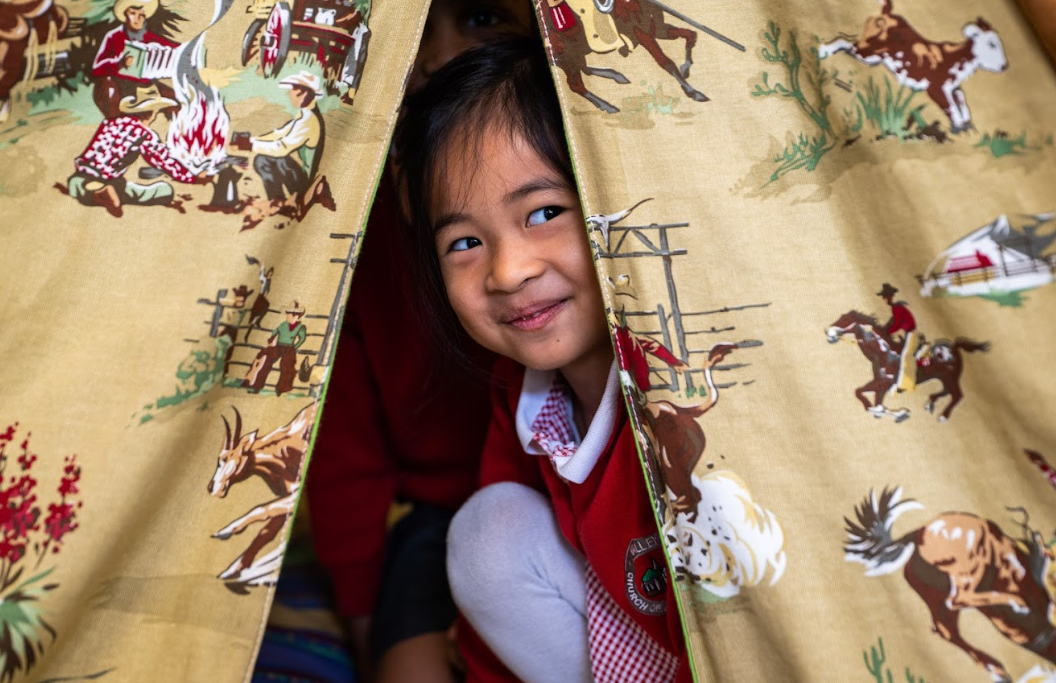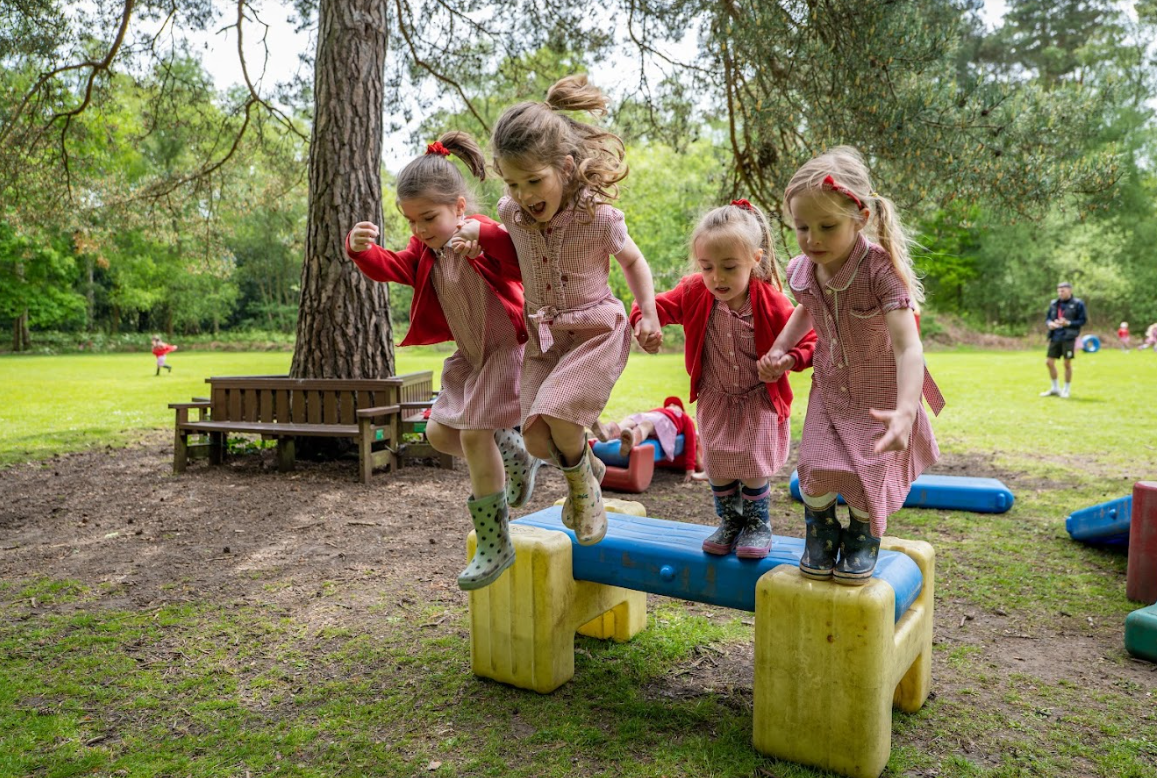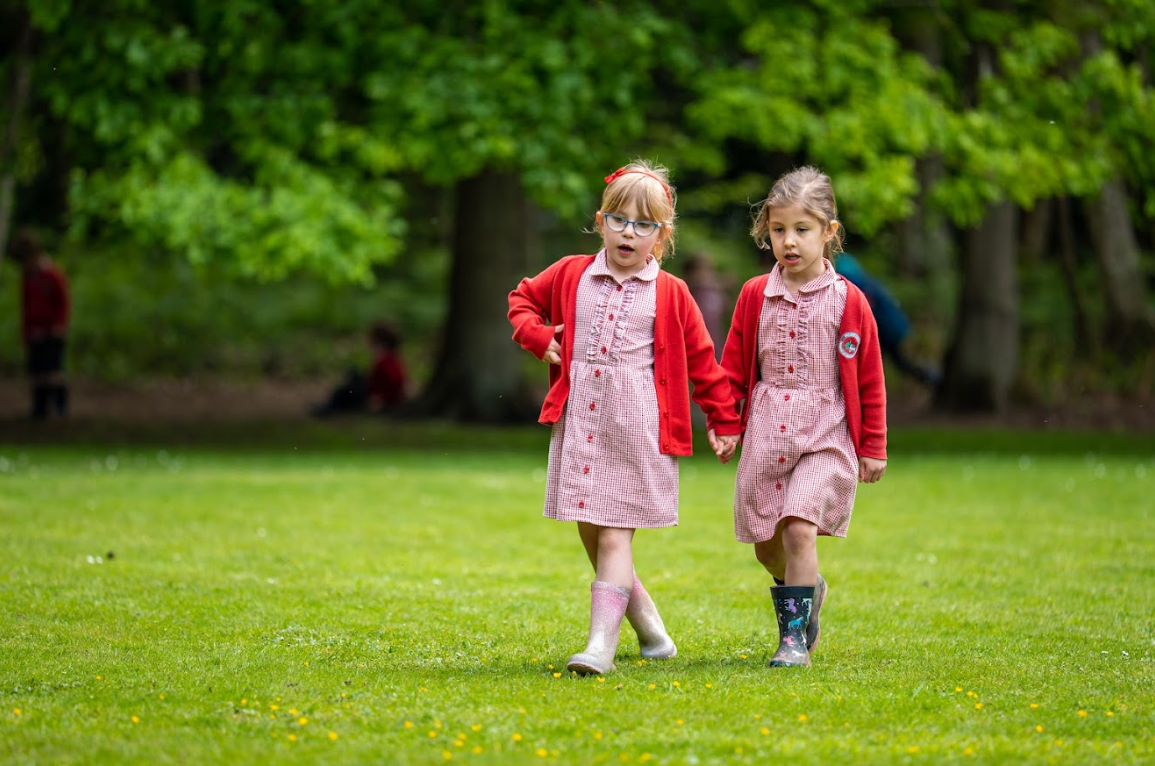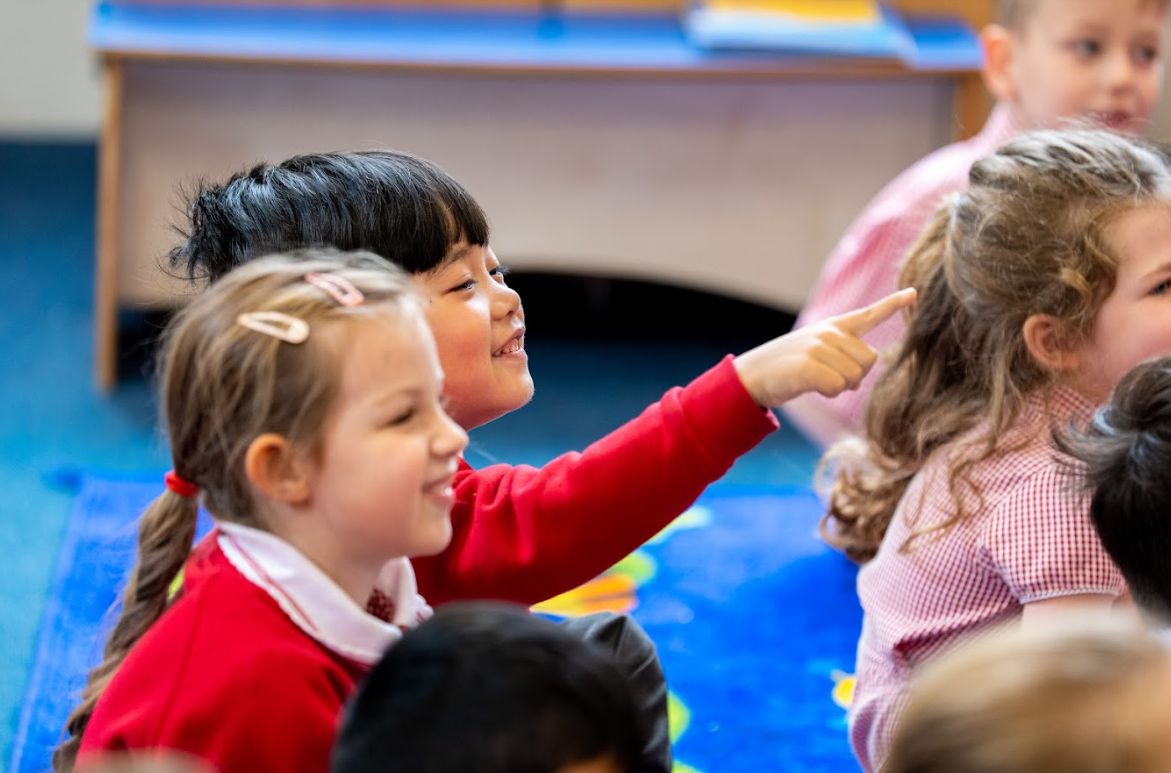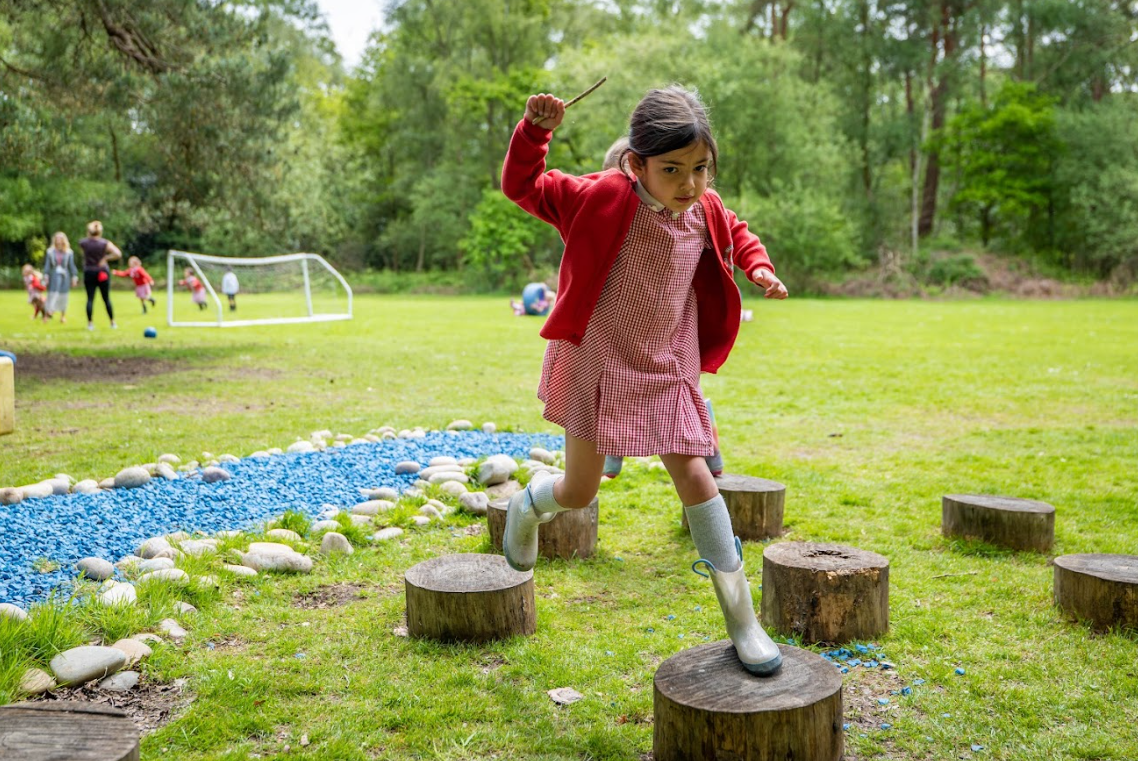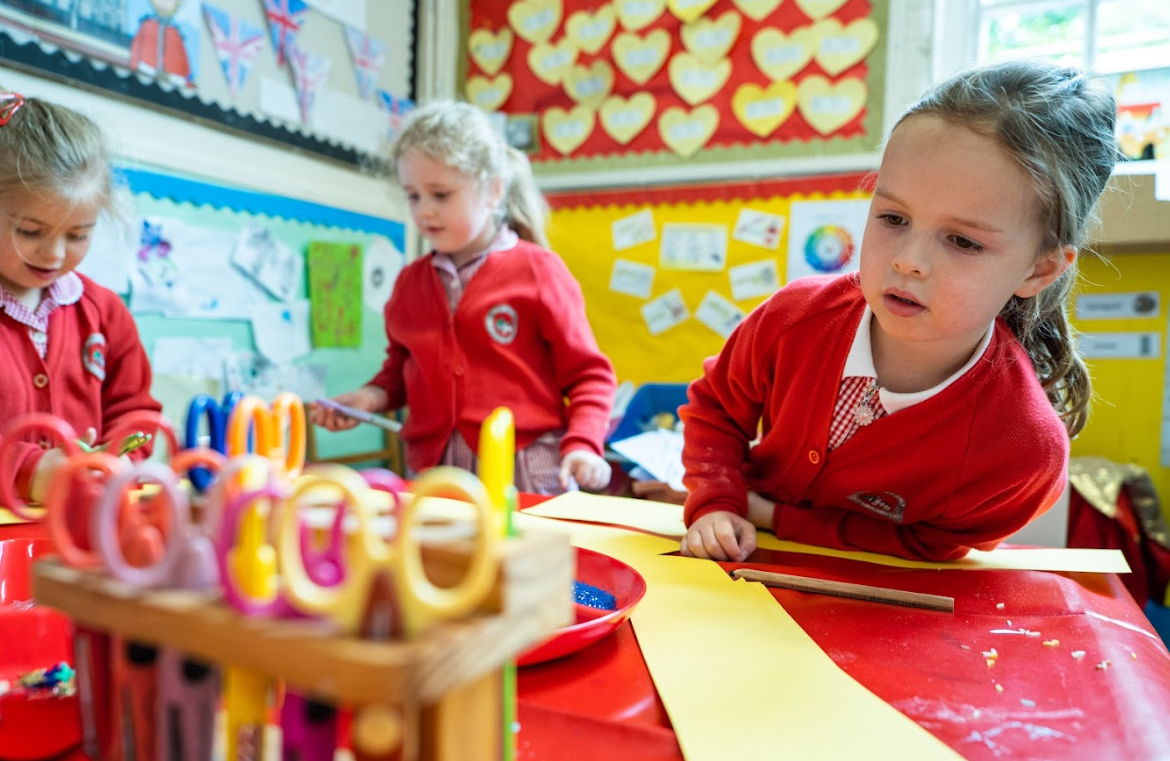Early Years
Early Years Foundation Stage
Introduction
At Valley End Infant School, we know that children achieve and flourish in a safe, happy environment, with learning opportunities that are carefully planned to meet all needs.
Our highly qualified and nurturing staff, plan learning opportunities thoughtfully, to ensure tasks are exciting, fun and challenging. We encourage children to know how best they learn, to strive always to do their best, and to learn the skills they need to support their future life chances.
Learning
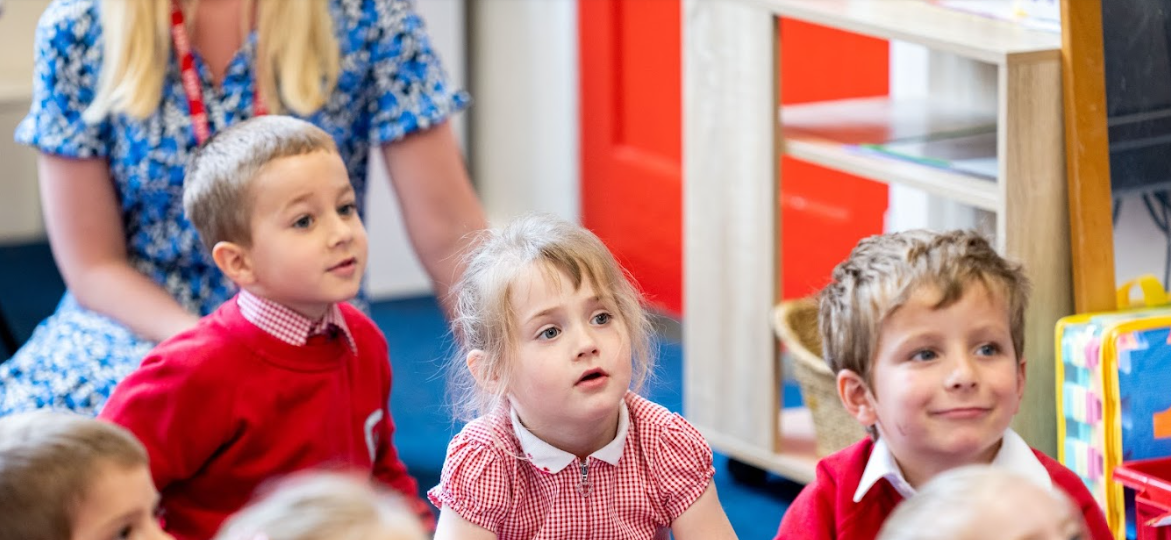
These are the four Guiding Principles that shape our practice.
• Every child is unique, constantly learning and can be resilient, capable, confident and self-assured.
• Children learn to be independent through positive relationships
• Children learn and develop in environments conducive to high quality teaching and learning and, where their experiences are nurtured and developed.
• Children learn in different ways, at different rates and where the curriculum is delivered in a variety of styles.
The Characteristics of Effective Learning are developed through:
• Playing and exploring (being curious and asking questions) so that children become engaged. They have opportunities to find out and explore, play with what they know and develop the confidence to ‘have a go’.
• Active learning so that children are motivated. They learn to become involved, concentrate, keep trying (be resilient) and enjoy achieving
• Creating and thinking critically so that they have their own ideas, can make links in learning and can choose ways of doing things.
Learning takes place through a range of adult led and child initiated activities. Children take part in whole class and small group learning opportunities, throughout the day, with a variety of adults. This takes place in the different settings of the school including the classrooms, outside in the playground or field, in the conservatory or Owl Non-fiction library.
The curriculum for Early Years is organised into 7 Areas of Learning. There are Prime and Specific areas.
All areas of learning and development are important and inter-connected. The Prime areas are crucial for engaging and promoting children’s curiosity and enthusiasm for learning, for building their capacity to form relationships and thrive. The Prime areas are strengthened and applied through the Specific Areas.
The three Prime Areas are: Communication and Language, Physical Development, Personal, Social and Emotional Development
The four Specific Areas are: Literacy, Mathematics, Understanding the World and Expressive Arts and Design.
Communication and Language
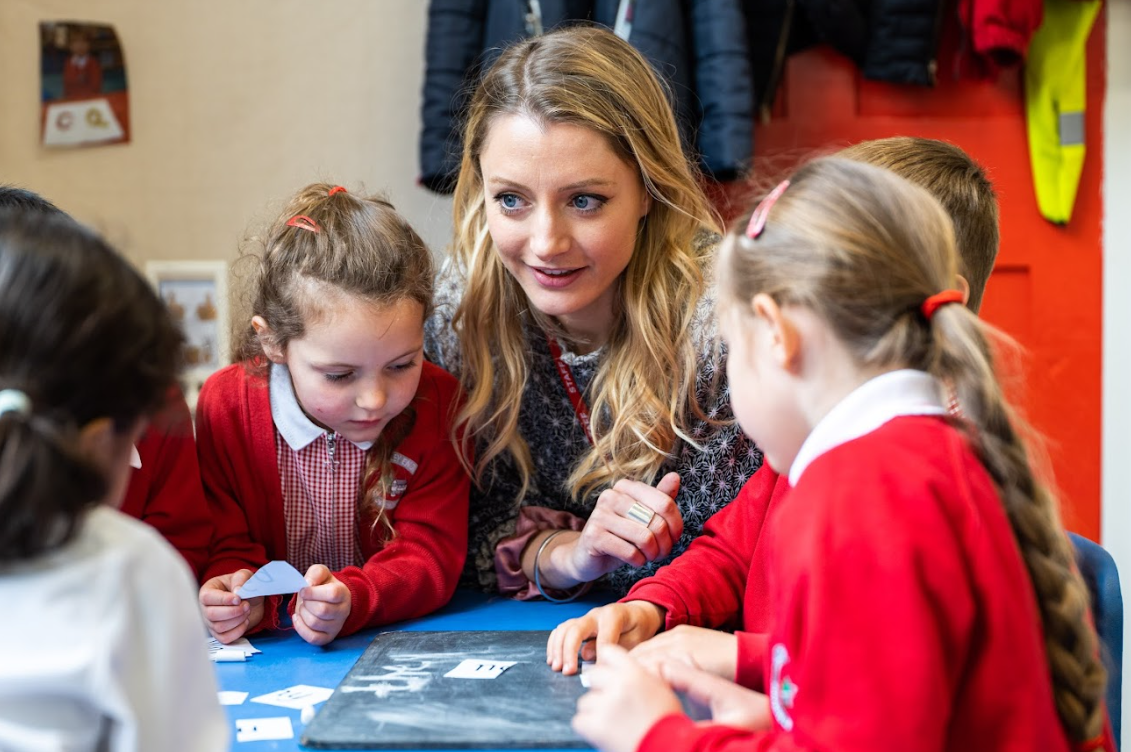
Listening, Attention and Understanding: Children listen attentively in a range of situations. They listen to stories, accurately anticipating key events and respond to what they hear with relevant comments, questions or actions. They give their attention to what others say and respond appropriately, while engaged in another activity. Children follow instructions involving several ideas or actions. They answer ‘how’ and ‘why’ questions about their experiences and in response to stories or events.
Speaking: Children express themselves effectively, showing awareness of listeners’ needs. They use past, present and future forms accurately when talking about events that have happened or are to happen in the future. They develop their own narratives and explanations by connecting ideas or events.
At Valley End Church of England Infant School we believe that the ability to communicate effectively opens the doors to success in all other areas of learning. Children need to be fluent and confident in a range of situations and with a range of people. They need to be able to listen to the views of others, responding appropriately by questioning or commenting. Speech needs to be clear and eye contact made.
Children take part in sessions where specific skills are taught. These skills are then rehearsed, in every area of learning. Effective listening and pronunciation is vital for learning phonics and time is spent supporting the correct sounding of each phoneme. Children need to be able to pronounce sounds and words correctly, as this has a direct impact on their phonic development. Parents are also inducted into correct phonic pronunciation in order to support their children’s literacy development.
Physical Development
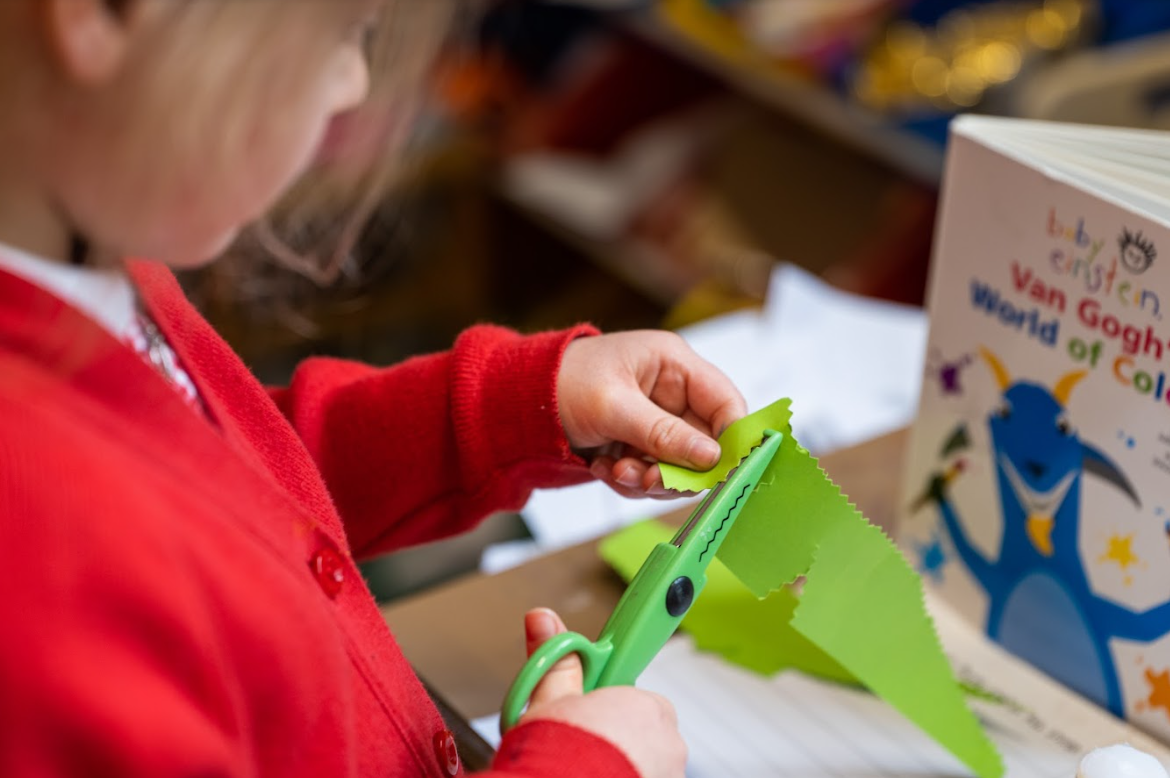
Gross Motor Skills and Fine Motor Skills: Children show good control and co-ordination in large and small movements. They move confidently in a range of ways, safely negotiating space. They handle equipment and tools effectively, including pencils for writing.
Children at Valley End School have many opportunities planned to develop effective fine and gross motor skills that will support a range of learning experiences from handwriting, and using a knife and fork effectively, to putting on PE Kits and coats. These skills increase the children’s levels of independence and well-being.
Children have daily access to the outside area and woodlands allowing opportunities to develop gross motor skills in a wide range of activities. They also take part in PE sessions where specific skills are taught. Provision is made daily to support developing fine motor control such as cutting activities, games using tweezers and using construction equipment to build models. Children also take part in handwriting activities tailored to suit their differing needs, with support for those who need enhanced provision.
Personal, Social and Emotional Development
There are three Early Learning Goals within this area:
Building Relationships: Children play co-operatively, taking turns with others. They take account of one another’s ideas about how to organise their activity. They show sensitivity to others’ needs and feelings, and form positive relationships with adults and other children.
Managing Self: Children know the importance for good health of physical exercise, and a healthy diet, and talk about ways to keep healthy and safe. They manage their own basic hygiene and personal needs successfully, including dressing and going to the toilet independently.
Self Regulation: Children talk about how they and others show feelings, talk about their own and others’ behaviour, and its consequences, and know that some behaviour is unacceptable. They work as part of a group or class, and understand and follow the rules. They adjust their behaviour to different situations, and take changes of routine in their stride.
The children learn about their rights and responsibilities. They learn that with adult support they can uphold their responsibilities and be outstanding citizens. Behaviour Management is closely linked and children understand that they work for the good of the class, as well as for themselves. Circle times are effective in teaching children management skills around feelings, emotions and friendships.
Play activities and the problems children face during their play form a large part of our curriculum. For example, supporting children as they learn to share and take turns in a variety of situations and also guiding children, as they learn to make new friends and work through friendships issues that may develop.
The Year 2 School Monitors help children in the playground, by showing their peers how to take turns, play fairly and give support when making new friends.
Literacy
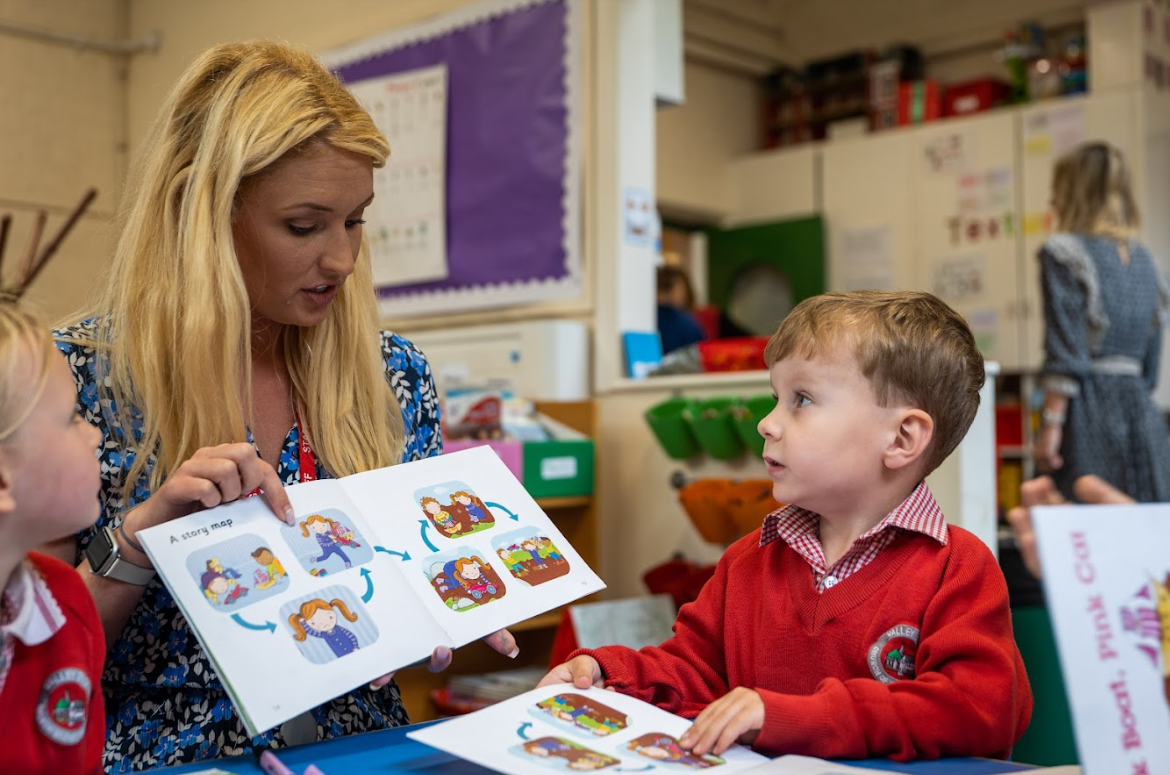
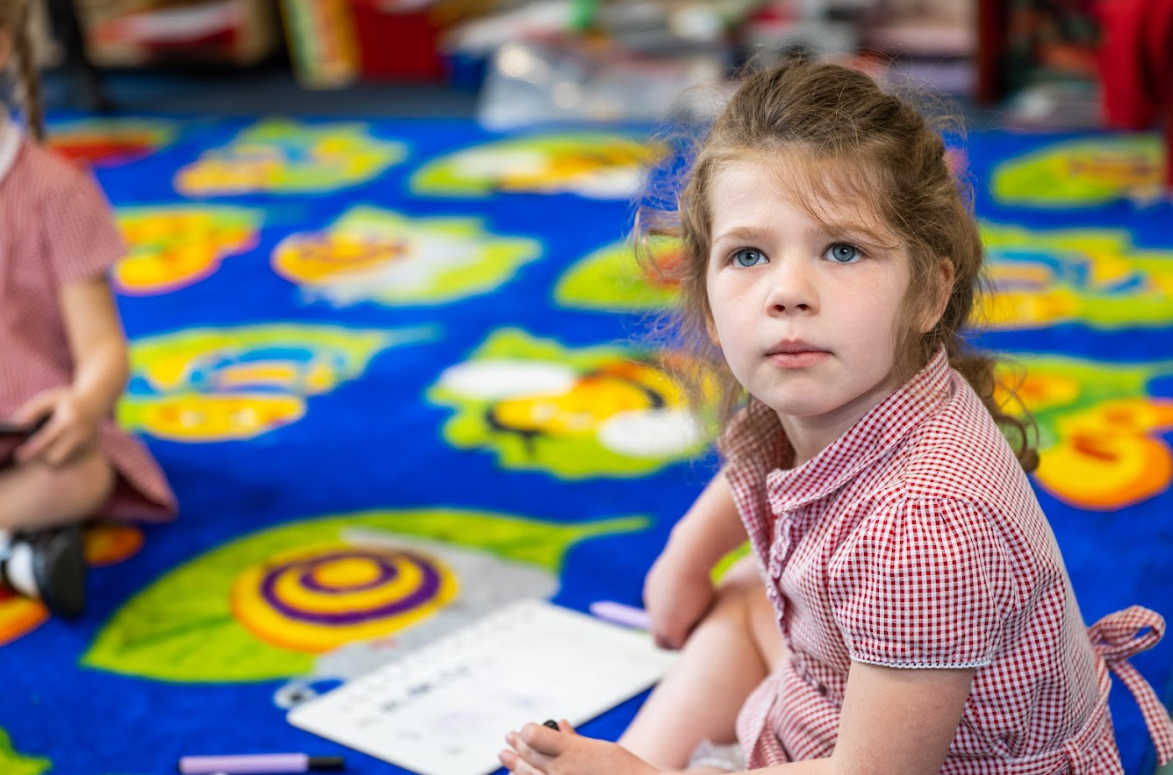
There are three Early Learning Goals within this section:
Comprehension and Word Reading: Children read and understand simple sentences. They use their phonic knowledge to decode regular words and read them aloud accurately. They also read some common irregular words. They demonstrate understanding when talking with others about what they have read.
Writing: Children use their phonic knowledge to write words in ways which match their spoken sounds. They also write some irregular common words. They write simple sentences which can be read by themselves and others. Some words are spelt correctly and others are phonetically plausible.
There are many opportunities in the Early Years classes for children to engage in activities that promote a love of books and writing. They enjoy taking part in story and rhyme sessions and exploring mark making, with a range of medium.
Children engage in activities that develop pencil control and they learn to write their name in a cursive script straight away. There is a very close link between cursive writing and high achievement in spelling.
Children are usually grouped in focus groups for reading, writing and phonics, enabling learning to be specific, targeted and personalised.
Phonic and handwriting sessions take place daily and are used to enhance the links between sounds, reading and writing. Planned weekly sessions of shared and guided reading and writing take place in small groups or as individuals.
Please see link below for the correct pronunciation of phonemes:
Mathematics
There are two Early Learning Goals within this area:
Number and Numerical Pattern: Children count reliably with numbers from one to 20, place them in order and say which number is one more or one less than a given number. Using quantities and objects, they add and subtract two single-digit numbers and count on or back to find the answer. They solve problems, including doubling, halving and sharing.
In Mathematics, children learn to count, order, record and recognise numbers. Much Mathematics is embedded through work and play in other areas, when making and building things or through role play, for example. They develop skills in adding and subtracting, and using numbers in problem-solving situations in and around the classroom. Children explore shapes, and learn the vocabulary of Mathematics. They have further opportunities to compare measurements and to use non-standard measurements in their play.
We are delighted to be partnering with NCETM this year to provide the Mastering Number programme to our children.
Understanding the World
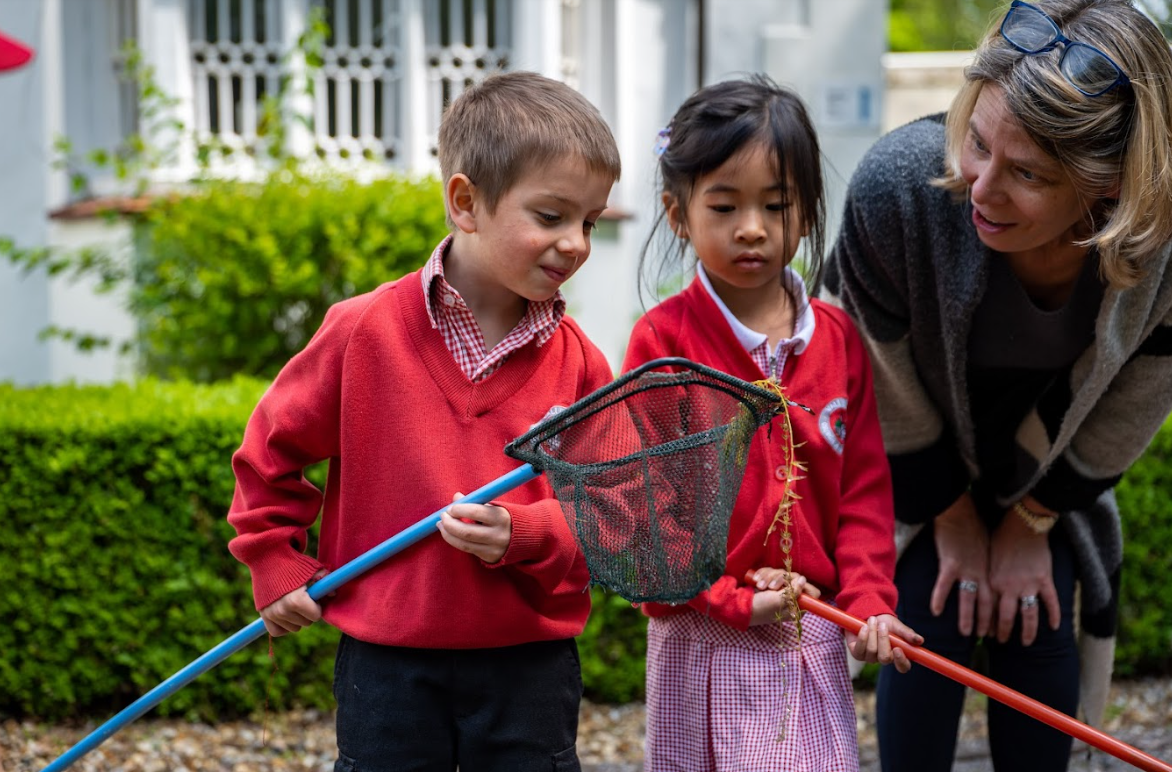
Past and Present, People Culture and Communities: Children talk about past and present events in their own lives and in the lives of family members. They know that other children don’t always enjoy the same things, and are sensitive to this. They know about similarities and differences between themselves and others, and among families, communities and traditions.
The Natural World: Children know about similarities and differences in relation to places, objects, materials and living things. They talk about the features of their own immediate environment and how environments might vary from one another. They make observations of animals and plants and explain why some things occur, and talk about changes.
Through a range of topics and everyday experiences, children develop their understanding and knowledge of the world around them. This area of our curriculum includes activities which cover learning in The World, Technology, People and Communities, Conservation, and Global Issues.
Children learn about similarities and differences between themselves and others. For example, the topic of ‘Babies’, explores how we have changed from babyhood to childhood. This area also teaches the children about friends and families, looking at traditions and different types of celebrations.
Throughout the year, the children receive visits from people who work in our local community including firefighters and police officers, helping them to develop a better understanding and interest in different occupations and ways of life.
When learning about the world, the focus is on understanding and developing early science and geographical skills. The children engage in basic fieldwork activities, using the surrounding environment to help them. The school has excellent natural facilities that encourage the children to recognise and identify changes to the flora and fauna, when discussing the changing seasons, provides opportunities for pond dipping and help to develop vocabulary linked to different environments, maps and environmental features.
Through various hands-on, practical tasks, children can explore why things happen and how things work. The children have the opportunity to learn about a range of technology, including use of the school ICT Suite, programmable toys and our class set of iPads which they use in a range of ways to enhance learning in other areas.
Expressive Art and Design
There are two Early Learning Goals in this area:
Creating with Materials: They safely use and explore a variety of materials, tools and techniques, experimenting with colour, design, texture, form and function. Children sing songs, make music and dance, and experiment with ways of changing them.
Being Imaginative and Expressive: Children use what they have learnt about media and materials in original ways, thinking about uses and purposes. They represent their own ideas, thoughts and feelings through design and technology, art, music, dance, role play and stories.
A role play area is set up to enhance the topic being covered; opportunities are made for learning all seven areas of our curriculum. Children use their imaginations as they take on roles and create story lines in their play.
Children take part in music and singing sessions. They have opportunities to explore the sounds of different instruments and to create their own sounds. They take part in music and movement sessions and have opportunities to listen and respond to different types of music.
Children are taught a range of art and design technology skills which they are then encouraged to use in their child initiated activities. Children are encouraged to make individual choices, to select and find the resources they need to make their pictures/models. They are taught how to look after and put away these resources.
